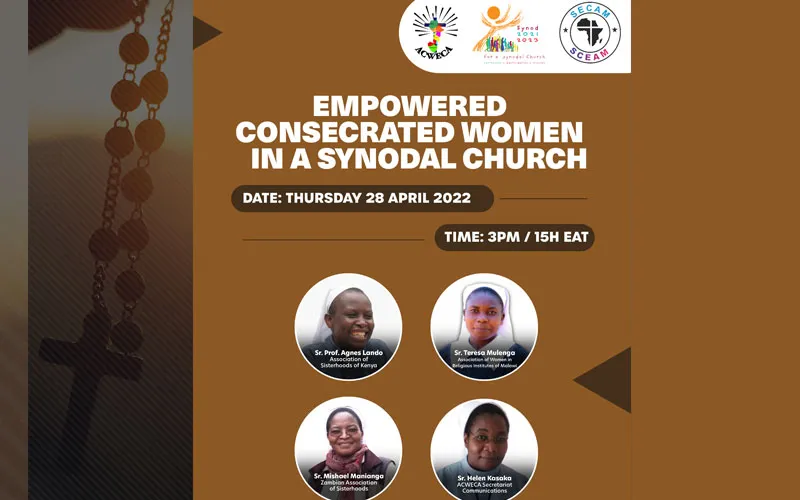The process of communal or collective listening “allows one to move from the ‘I’ to the ‘We’ space where decisions are made bearing in mind what others call the ‘bigger picture’ – the common good,” Sr. Manianga added during the April 28 session held under the theme, “Empowered Consecrated Women in a Synodal Church.”
“This kind of decision-making tool inspires a Value based kind leadership that opts to listen to her members without leaving others out,” the Zambian Catholic Nun said, and continued, “I guess this is what Synodality promotes; embracing all without leaving out any. Having all voices heard including those on the peripheries/margins.”
“While authority must be above all fraternal and spiritual, and while those entrusted with it must know how to involve their brothers and sisters in the decision-making process, it should still be remembered that the final word belongs to authority and consequently, that authority has the right to see that decisions taken are respected,” she said in reference to paragraph 43 of John Paul II's Apostolic Exhortation, Vita Consecrata.
Reflecting on synodality in the apostolate of pastoral workers, Sr. Manianga said, “Diocesan Pastoral Council, Parish Pastoral Councils and Centre Pastoral Councils were seen as fora for dialogue and decision building.”
“As much as they would be perceived as consultative bodies, they greatly influence decisions that would later be pronounced in the Parish/Diocese. In both instances, the representation of the Laity, Religious and Clergy has been key. These expressions of collaboration for me are seeds of Synodality,” the RSHS member who is the Diocesan Pastoral Coordinator for Zambia’s Diocese of Monze said.
She acknowledged the “visibility and presence of Consecrated women in various pastoral assignments beyond the parish ministry who by virtue of their leadership roles in these numerous institutions greatly participate in decision making processes – either as head or staff in these institutions or serve there.”
“Powered by the various charisms, the women Religious are influential and key to decision-making processes in these institutions,” she added.
In October 2021, Pope Francis formally launched the two-year global consultation process leading to the 2023 synod on synodality with a call to “look others in the eye and listen to what they have to say.”
Earlier, in May last year, the Vatican had announced that the Synod on Synodality would open with a Diocesan phase lasting from October 2021 to April 2022. A continental phase, the second, is to take place from September 2022 to March 2023.
The third, which is the universal phase, would begin with the XVI Ordinary General Assembly of the Synod of Bishops, dedicated to the theme, “For a Synodal Church: Communion, Participation, and Mission” at the Vatican in October 2023.








